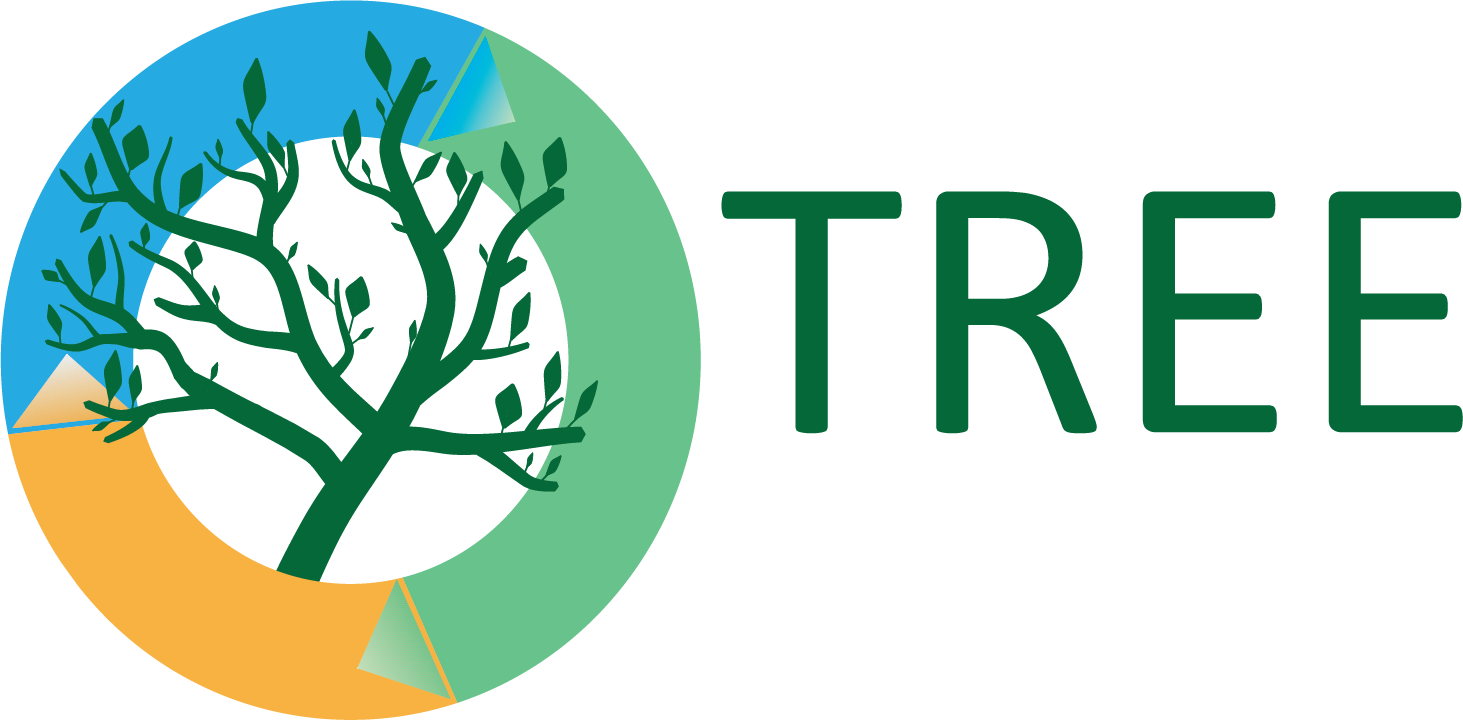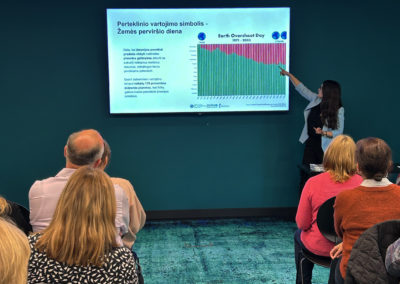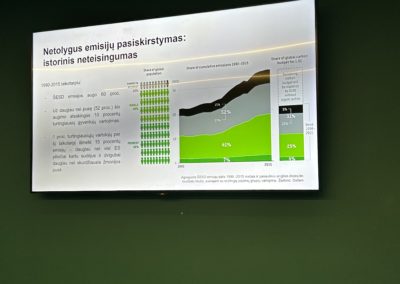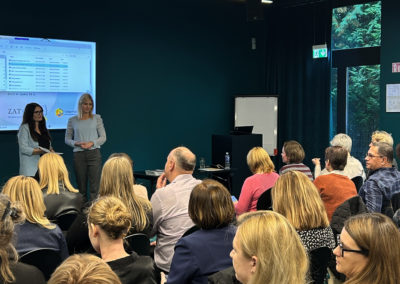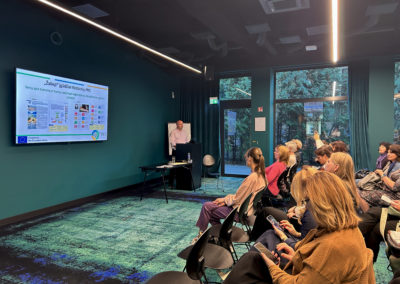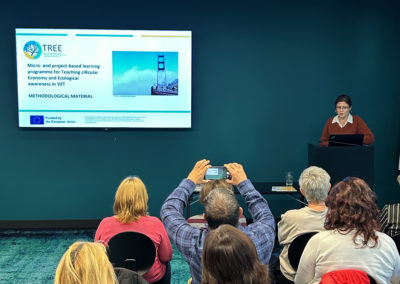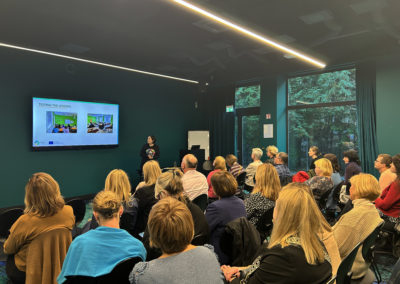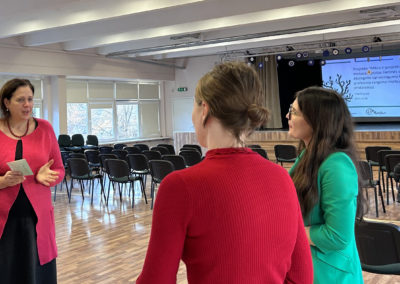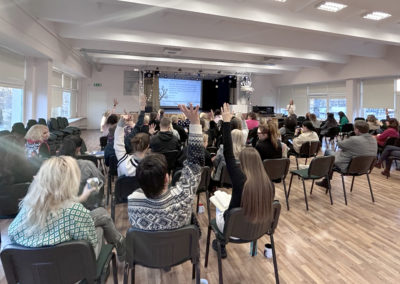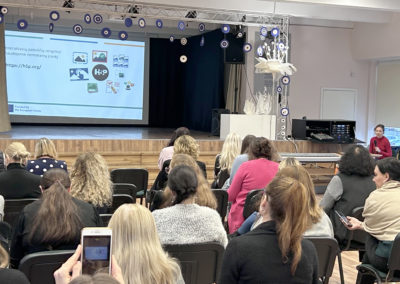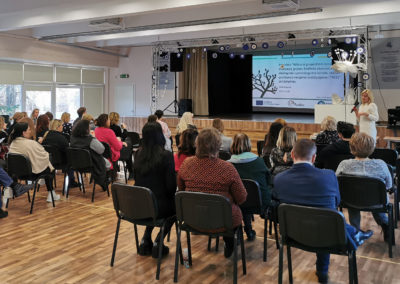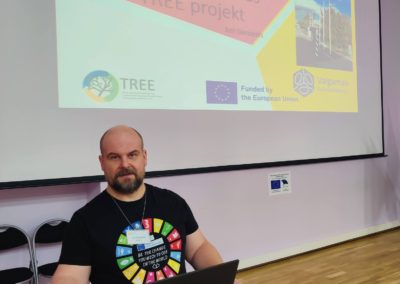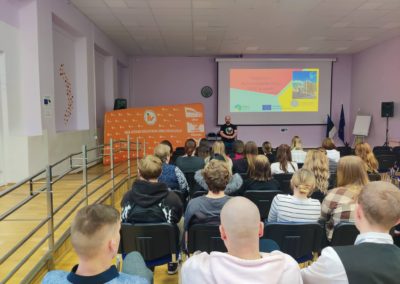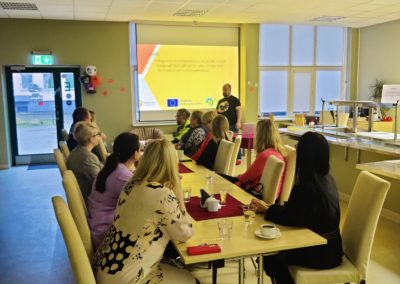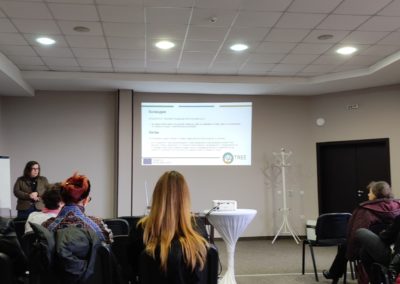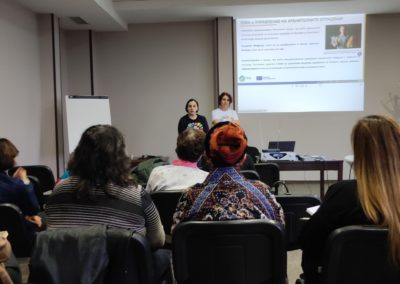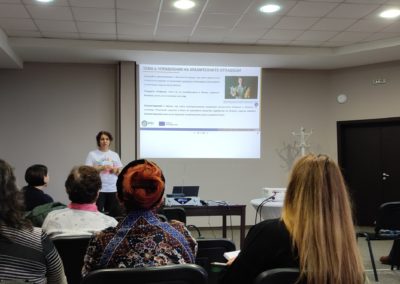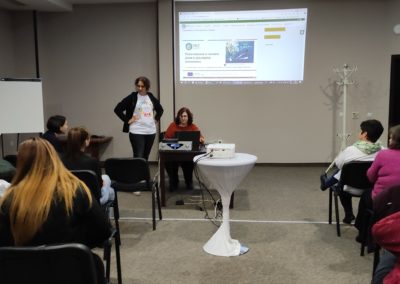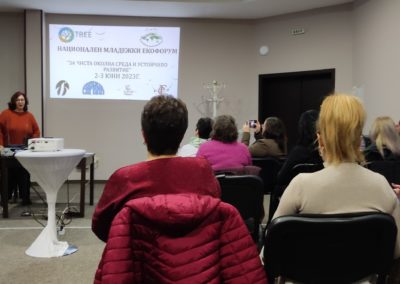Conference “The Importance of Teaching Circular Economy and Sustainable Development“
On 16th October 2023, an international conference was held to disseminate the results of the “TREE” project. The conference took place at the “BLC Multifunctional Business Center” and was attended by vocational and secondary education teachers from various Lithuanian and foreign educational institutions.
The project coordinators and conference organisers “eMundus” presented the aim, objectives, context of the project and developed results: the seven-chapter methodological material book that provides a comprehensive overview of the circular economy (CE) and sustainability actions implemented in the “TREE” partner countries, the challenges and opportunities in the European Union, Education for Sustainable Development (ESD) and its promotion, green skills, project-based and micro-learning methods that can be applied to teach young people about these topics.
Open educational resources platform online was presented to participants. The platform provides learning material – short interactive lessons about circular economy and sustainability, plastics, agrifood, wood, descriptions of practical activities and useful tips and suggestions for project work, as well as knowledge assessment questionnaires.
The project partners from Bulgaria, Estonia, the Netherlands and Lithuania vocational training, non-formal education organizations and schools discussed the project’s results and challenges faced during implementation. Each partner from the vocational educational institutions presented implemented environmentally friendly activities that influenced the formation of sustainable daily habits, engaged students and teachers and initiated discussions.
Keynote speaker – Ieva Budraitė, a representative and project manager from the Lithuanian Green Policy Institute, discussed how the circular economy functions and its impact on our daily lives. I. Budraitė highlighted overconsumption as a significant issue, symbolized by Earth Overshoot Day. This is the date when humanity’s demands begin to exceed the Earth’s ability to regenerate (or create) the necessary annual resources needed to sustain those demands. At the current consumption rate, we would need 175% of Earth’s capacity to sustain humanity’s needs sustainably. To address overconsumption, countries worldwide are striving to manage this issue by implementing various excess consumption prevention programs, recycling technologies, and methods, such as plastic bottle collecting and recycling, which is most effective in Lithuania compared to other European countries. As one of the most progressive methods to address excess consumption, I. Budraitė introduced the circular economy, the essence of which lies in decoupling economic growth from resource usage. Preventive measures in circular economy include: designing consumer and digital electronics products to reduce their environmental impact, introducing digital passports on the sustainability of each product, obliging manufacturers to give consumers the right to repair their electronics and developing specialties capable of developing and managing technological and process innovations that “close the loop” of resource use.
Aivaras Pranarauskas – the representative of Lithuanian Public Employment Service introduced relevant international project “Intercept”, which aims to reduce the unemployment of young people aged between 25 and 30 in Europe by training and employing them in companies with sustainable practices, while at the same time aiming to take into account the potential of the young people and teach them about sustainable living in their daily lives. The project involves nine organisations from six countries. According to the experience of the “Intercept” project, the four best soft skills for green workplaces are: problem solving, motivation, skills to manage and maintain technology and communication.
Project results disemination event in Kaunas, Lithuania
On the afternoon of 28 November, we had a great event at Kaunas Simonas Daukantas progymnasium, presenting the results of the TREE project – open access educational resources that can be used by teachers to teach children sustainable development and the circular economy.
Guest speaker Ieva Budraitė, Director of the Green Policy Institute for International and Project Activities, presented practical examples of how the circular economy is transforming our daily lives. One of the examples – tyres collected during the clean-up of the polluted Amalė stream were recycled into pellets, which were used to cover a children’s playground in Dainava Park.
We are very pleased with the great interest and activity of the teachers, and we noticed that teachers were willing to take the initiative to bring their own cup, thus reducing the use of disposable items.
Project results disemination event in Ida-Virumaa, Estonia
On October 31st, Ida-Virumaa Vocational Education Centre hosted the closing seminar of the TREE project. During the seminar, the project results were presented to the students who participated in the project, and a related quiz was organized. Later, at the La Formi training restaurant, an awareness event was held where guests were introduced to the TREE project.
The event included discussions on the collaboration within the project and the opportunities to use the project’s results and materials in educational activities. We would like to express our sincere gratitude to our cooperation partner, Ida-Virumaa Vocational Education Centre, for their contribution to the preparation and successful execution of this excellent and effective event.
Project results disemination event in Arbanasi, Bulgaria.
The Bulgarian team TREE multiplier event was held on Nov 24th in Arbanasi, Bulgaria. The event was organized to share the results with teachers, headmasters and educators from Plovdiv, Sofia, Pavlikeni, Veliko Tarnovo, Polikraishte and Gorna Oryahovitsa. We not only presented the results, but also provided practical instruments for using micro-learning online and conducted a workshop on sustainability, led by our friends and partners from ПГ “Проф. д-р Асен Златаров” Видин. TREE offers an abundance of educational resources, which educators can immediately apply in their lessons, focused on sustainable development education and circular economy.
